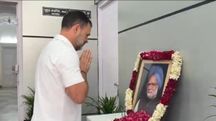‘25 per cent of POCSO cases in West Bengal, Assam, Maharashtra are romantic relations’, Study reveals
The study also shows that in 46.6 per cent of these "romantic cases", the girl is between 16 and 18 years of age.
 ‘25% of POCSO cases are romantic relations’
‘25% of POCSO cases are romantic relations’One in every four cases under the Protection of Children from Sexual Offences (POCSO) Act in West Bengal, Assam and Maharashtra are "romantic cases", as per an Enfold Proactive Health Trust and UNICEF-India study.
The study also shows that in 46.6 per cent of these "romantic cases", the girl is between 16 and 18 years of age. These findings are in line with CJI D Y Chandrachud's call to lawmakers to address the increasing concern about adolescents who engage in consensual sexual activity being criminalised.
Researchers Swagata Raha and Shruti Ramakrishnan, who authored the study, looked at 7,064 POCSO judgments from 2016-2020 in the three states and found court documents in 1,715 cases showing admission of a consensual relationship between the complainant and the accused. The study, which came out on December 10 also showed that in 1,508 cases - which is 87.9 per cent of the "romantic cases", the girl admitted to being in a "romantic relationship" with the accused in the investigative or evident finding stage, or both.
The report notes that the criminal justice system was sometimes used to deter girls from entering into relationships against the wishes of their families or to strongarm them to return home if they've eloped.It further states that POCSO charges also serve to compel the accused to keep his promise of marriage.
The study also found that convictions were recorded only in exceptional cases and acquittals were the norm in “romantic cases”. This shows that the courts take a lenient view of such cases even when the legislation does not recognise consensual sexual activity for minors below the age of 18 years.
Speaking at the National Annual Stakeholders Consultation on Child Protection, CJI Chandrachud had urged the legislature to address the growing concern on the issue. “As you are no doubt aware, POCSO Act criminalises all sexual activity for those under the age of 18, regardless of whether consent is factually present between the two minors in a particular case… I have observed that this category of cases poses difficult questions for judges across the spectrum.”
Copyright©2025 Living Media India Limited. For reprint rights: Syndications Today









